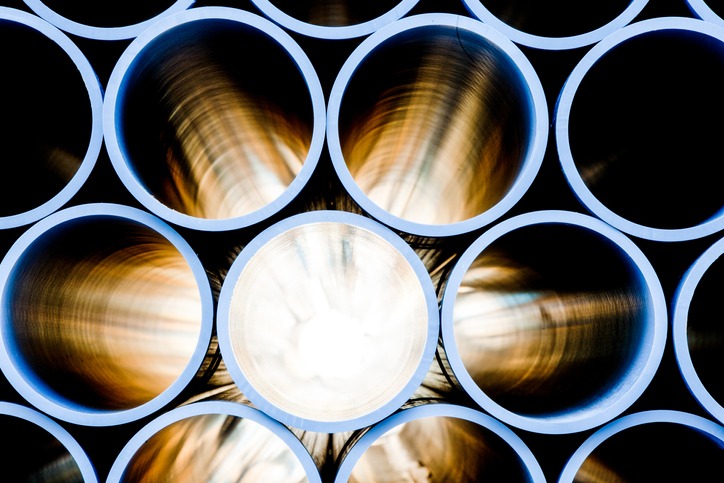ABS pipes are an essential component of modern plumbing systems and conducive to proper drain cleaning techniques. They are popular for their durability, affordability, and resistance to corrosion, making them a popular choice among plumbers and builders, but those who aren’t privy to this line of work may not be aware of what an ABS pipe actually is and what it does.
Take a closer look at ABS pipes, what they do, their properties, applications, and advantages, and how they are used in plumbing systems.
What are ABS Pipes?
ABS stands for Acrylonitrile Butadiene Styrene, which is a thermoplastic polymer that is commonly used in manufacturing pipes, fittings, and other plumbing materials. ABS pipes are lightweight, strong, and easy to install, making them a popular choice for residential and commercial plumbing systems.
Properties of ABS Pipes
One of the key advantages of ABS pipes is their durability. They are resistant to chemicals, impact, and heat, making them ideal for use in harsh environments. ABS pipes can withstand temperatures up to 180°F, which is higher than many other types of plastic pipes.
ABS pipes are also resistant to corrosion, which is a common problem with metal pipes. They do not rust or corrode, which means they have a longer lifespan than metal pipes. Additionally, ABS pipes are resistant to ultraviolet radiation, which makes them suitable for outdoor use.
Applications of ABS Pipes
ABS pipes are commonly used in plumbing systems for drainage and waste removal. They are particularly useful in areas where the system needs to be lightweight and easy to install, such as in residential and commercial buildings.
ABS pipes are also used in industrial applications, such as in chemical processing plants, because of their resistance to chemicals and heat. They are also used in marine applications because of their resistance to saltwater corrosion.
Advantages of ABS Pipes
There are several advantages to using ABS pipes in plumbing systems. First, ABS pipes are affordable and cost-effective. They are much cheaper than metal pipes, which makes them a popular choice for budget-conscious homeowners and builders.
Second, ABS pipes are easy to install. They do not require special tools or equipment, which means they can be installed quickly and efficiently. This can save time and money during the installation process.
Third, ABS pipes are lightweight. They are much lighter than metal pipes, which makes them easier to handle and transport. This is particularly useful in situations where the pipes need to be carried upstairs or in tight spaces.
Fourth, ABS pipes are resistant to corrosion. They do not rust or corrode, which means they have a longer lifespan than metal pipes. This can save money on maintenance and replacement costs in the long run.
Fifth, ABS pipes are easy to maintain. They do not require any special maintenance or cleaning, which means they can be left in place for many years without any problems. This can save time and money on maintenance and repair costs.
Disadvantages of ABS Pipes
While ABS pipes have many advantages, there are also some disadvantages to using them in plumbing systems. One of the main disadvantages is their susceptibility to damage from ultraviolet radiation. If ABS pipes are exposed to sunlight for prolonged periods, they can become brittle and crack.
Another disadvantage of ABS pipes is their lower temperature resistance compared to other plastic pipes. They are not suitable for use in hot water supply systems, as they can deform and lose their shape at high temperatures.
Installation and Maintenance of ABS Pipes
ABS pipes are easy to install and require minimal maintenance. They can be installed using solvent cement, which creates a strong bond between the pipe and fittings. The solvent cement is applied to the pipe and fitting, and then the two are joined together. The bond between the pipe and the fitting is created through a chemical reaction that fuses the two pieces together. ABS pipes should be installed by a licensed plumber to ensure that they are installed correctly and to prevent any leaks or other problems. During installation, it is important to follow the manufacturer’s instructions and use the appropriate tools and materials.
Once installed, ABS pipes require minimal maintenance. They do not require any special cleaning or maintenance, and they can be left in place for many years without any problems. However, it is important to inspect the pipes periodically to ensure that there are no cracks or other damage.
Conclusion
ABS pipes are an excellent choice for plumbing systems because of their durability, affordability, and resistance to corrosion. They are particularly useful in situations where the system needs to be lightweight and easy to install, such as in residential and commercial buildings. ABS pipes are also commonly used in industrial and marine applications because of their resistance to chemicals, impact, and saltwater corrosion. While ABS pipes have some disadvantages, such as susceptibility to damage from ultraviolet radiation and lower temperature resistance compared to other plastic pipes, their many advantages make them a popular choice for modern plumbing systems and drain cleaning functions.

